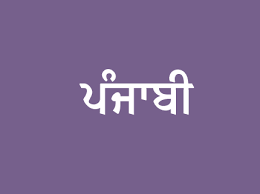Language/Panjabi/Grammar/Likes-and-Dislikes
As a language teacher, I understand the importance of expressing opinions and emotions in a language. Being able to express what you like and dislike is an essential part of communication. In this lesson, we will learn how to express likes and dislikes in Panjabi.
Expressing Likes in Panjabi
To express likes in Panjabi, we use the verb "ਪਸੰਦ ਹੈ" (pasand hai). It literally means "like."
Let's see some examples:
| Panjabi | Pronunciation | English |
|---|---|---|
| ਮੈਂ ਪਿੰਨਾ ਪਸੰਦ ਹੈ। | main pinnā pasand hai. | I like to drink. |
| ਮੈਂ ਸੂਪ ਪਸੰਦ ਕਰਦਾ ਹਾਂ। | main sūp pasand kardā hān. | I like soup. |
| ਸਾਡੇ ਘਰ ਵਿੱਚ ਮੱਛੀ ਖਾਣਾ ਪਸੰਦ ਹੈ। | sāḍē ghar vicch machhī khāṇā pasand hai. | We like to eat fish at home. |
In the example above, we used the verb "ਪਸੰਦ ਹੈ" (pasand hai) to express our likes. We added the infinitive form of the verb after "ਪਸੰਦ ਹੈ" (pasand hai). For example, "ਪਿੰਨਾ" (pinnā) means "to drink," and "ਖਾਣਾ" (khāṇā) means "to eat."
Using Adjectives to Express Likes
We can also express likes in Panjabi by using adjectives. Here are some examples:
| Panjabi | Pronunciation | English |
|---|---|---|
| ਮੈਂ ਖੁਸ਼ ਹਾਂ। | main khuś hān. | I am happy. |
| ਸਾਡੇ ਮਾਂ ਬਹੁਤ ਪਿਆਰੀ ਹਨ। | sāḍē māṃ bahut piārī han. | Our mothers are very dear. |
| ਮੇਰੇ ਦੋਸਤ ਬਹੁਤ ਮਸਤੀਆਂ ਕਰਦੇ ਹਨ। | mērē dōst bahut mastī'āṃ kardē han. | My friends have a lot of fun. |
In the examples above, we used adjectives like "ਖੁਸ਼" (khuś) meaning "happy," "ਪਿਆਰੀ" (piārī) meaning "dear" and "ਮਸਤੀਆਂ" (mastī'āṃ) meaning "fun."
Expressing Dislikes in Panjabi
To express dislikes, we use the word "ਨਫਰਤ" (nafarat). It means "hate" in English.
Let's see some examples:
| Panjabi | Pronunciation | English |
|---|---|---|
| ਮੈਂ ਧੋਖਾ ਨਫਰਤ ਕਰਦਾ ਹਾਂ। | main dhōkhā nafarat kardā hān. | I hate lies. |
| ਮੇਰੇ ਦੋਸਤ ਪੈਸੇ ਦੀ ਨਫਰਤ ਕਰਦੇ ਹਨ। | mērē dōst paisē dī nafarat kardē han. | My friends hate money. |
| ਸਾਡੇ ਘਰ ਵਿੱਚ ਰੋਮਾਂਚ ਫਿਲਮਾਂ ਦੀ ਨਫਰਤ ਹੈ। | sāḍē ghar vicch romānćh filmāṃ dī nafarat hai. | We hate romantic movies at our home. |
In the examples above, we used the word "ਨਫਰਤ" (nafarat) to express our dislikes.
Using Adjectives to Express Dislikes
Just like expressing likes, we can use adjectives to express dislikes. Here are some examples:
| Panjabi | Pronunciation | English |
|---|---|---|
| ਮੈਂ ਦੁਖੀ ਹਾਂ। | main dukhī hān. | I am sad. |
| ਮੇਰਾ ਦਿਲ ਖ਼ਾਰਾਬ ਹੈ। | mērā dil khārāb hai. | I feel disturbed. |
| ਸਾਡਾ ਮੂਡ ਉਦਾਸ ਹੈ। | sāḍā mūd udās hai. | Our mood is sad. |
In the examples above, we used adjectives like "ਦੁਖੀ" (dukhī) meaning "sad," "ਖ਼ਾਰਾਬ" (khārāb) meaning "disturbed" and "ਉਦਾਸ" (udās) meaning "sad."
Expressing Preferences in Panjabi
We often express our preferences in our daily lives. For example, we prefer tea over coffee, summers over winters, etc. In Panjabi, we can use the verb "ਪਸੰਦ ਕਰਦਾ/ਕਰਦੀ/ਕਰਦੇ ਹਨ" (pasand karadā/kardī/kardē han). It means "like" or "prefer."
Let's see some examples:
| Panjabi | Pronunciation | English |
|---|---|---|
| ਮੈਂ ਚਾਂਦੀ ਦੀ ਜਗ੍ਹਾ ਸੋਨੇ ਨਾਲ ਪਸੰਦ ਕਰਦਾ ਹਾਂ। | main chāndī dī jaghā sōnē nāl pasand karadā hān. | I prefer silver over gold. |
| ਮੈਂ ਸਰਦਿਆਂ ਦਾ ਮੌਸਮ ਪਸੰਦ ਕਰਦੀ ਹਾਂ। | main sardiāṃ dā mausam pasand kardī hān. | I prefer cold weather. |
| ਸਾਡੇ ਪਰਿਵਾਰ ਨੂੰ ਖੇਤੀ ਵਾਲੀ ਜਗ੍ਹਾ ਵਲੋਂ ਪਸੰਦ ਕਰਦੇ ਹਨ। | sāḍē parivār nū khētī vālī jaghā valōṃ pasand kardē han. | Our family prefers a rural area. |
In the examples above, we used the verb "ਪਸੰਦ ਕਰਦਾ/ਕਰਦੀ/ਕਰਦੇ ਹਨ" (pasand karadā/kardī/kardē han) to express our preferences.
Using Adjectives to Express Preferences
We can also use adjectives to express our preferences. Here are some examples:
| Panjabi | Pronunciation | English |
|---|---|---|
| ਮੈਂ ਅਮੀਰ ਹੋਣਾ ਪਸੰਦ ਕਰਦਾ ਹਾਂ। | main amīr hōṇā pasand karadā hān. | I prefer to be rich. |
| ਸਾਡੇ ਮਹਿਲਾ ਵਾਲੇ ਕੌਸ਼ੀ ਪਸੰਦ ਕਰਦੀਆਂ ਹਨ। | sāḍē mahilā vālē kaushī pasand kardī'ān han. | Our women prefer cotton. |
| ਮੈਂ ਹੁੰਦੀ ਖ਼ੁਸ਼ ਸ
|

